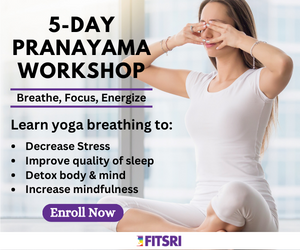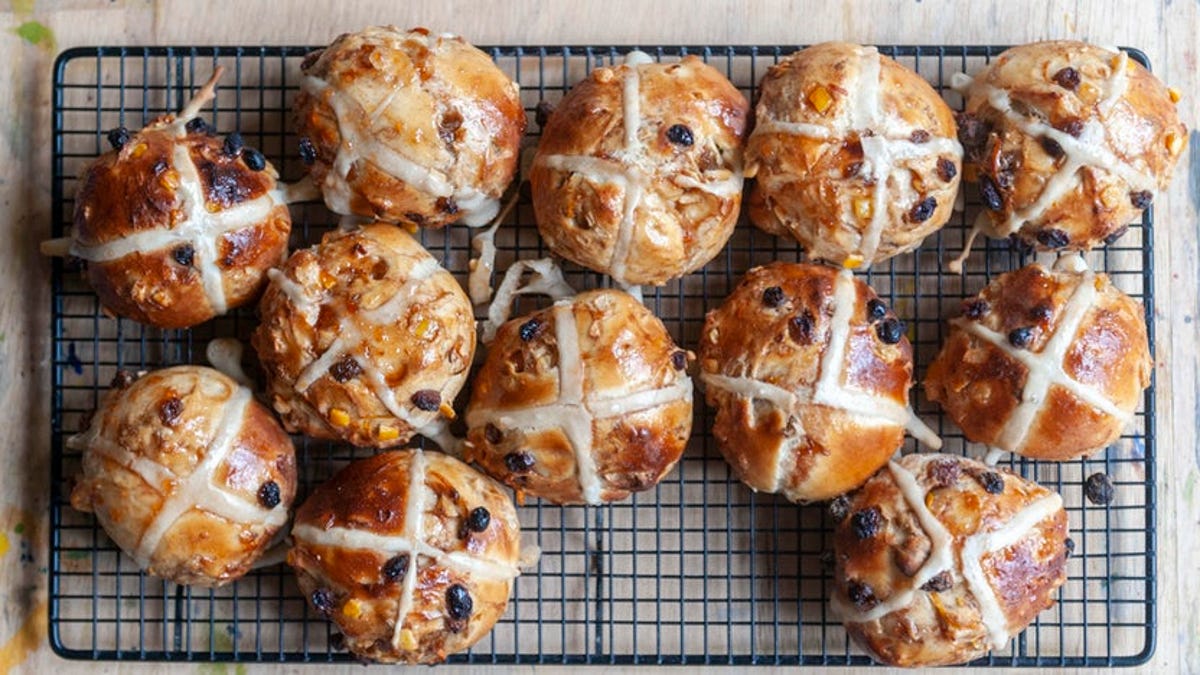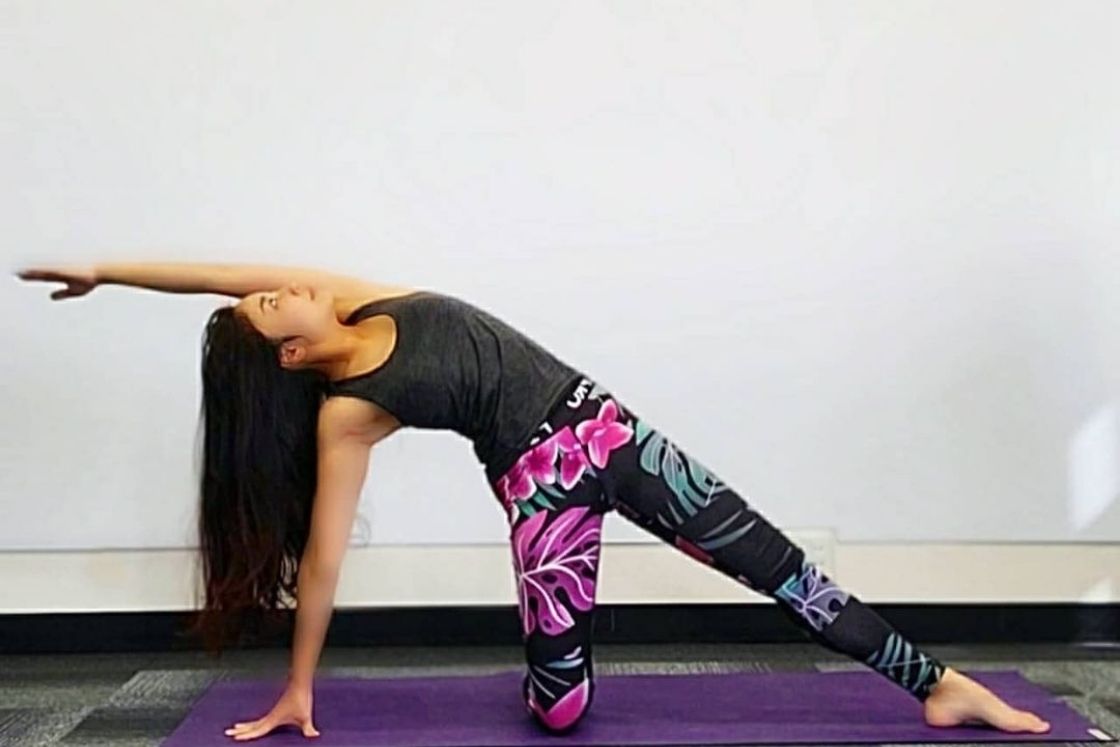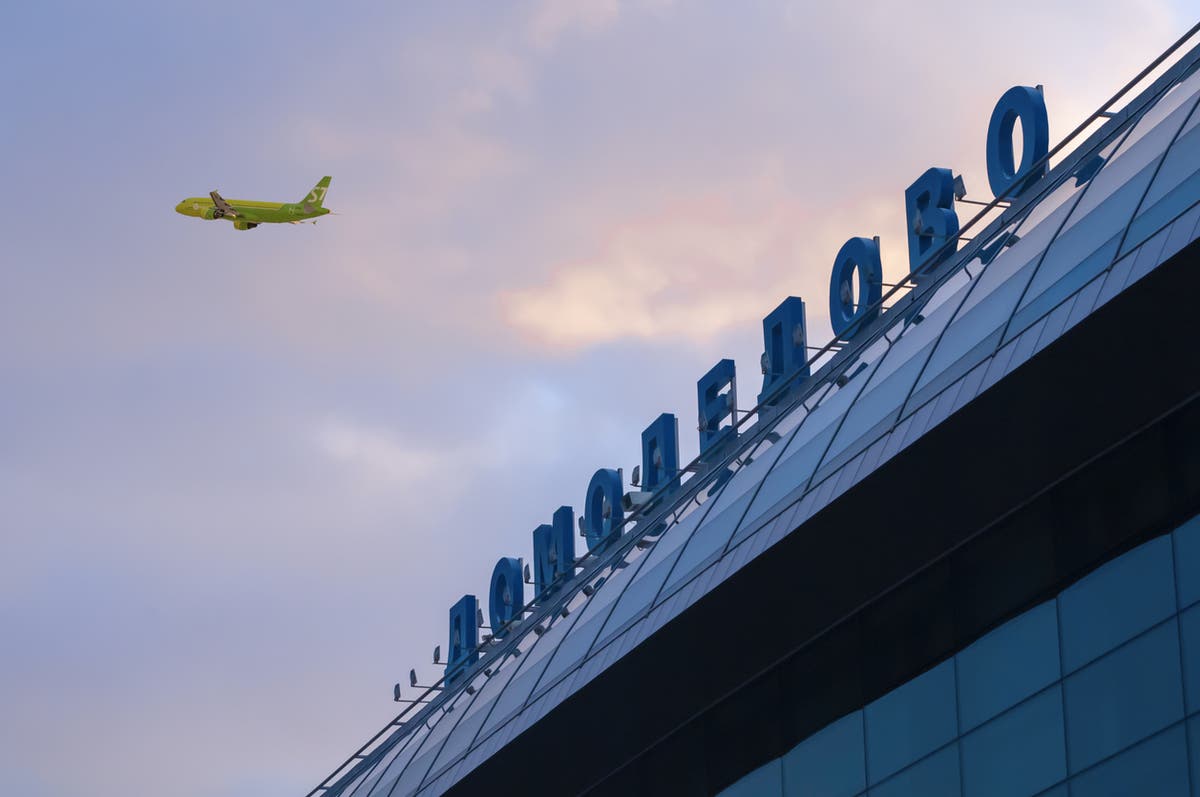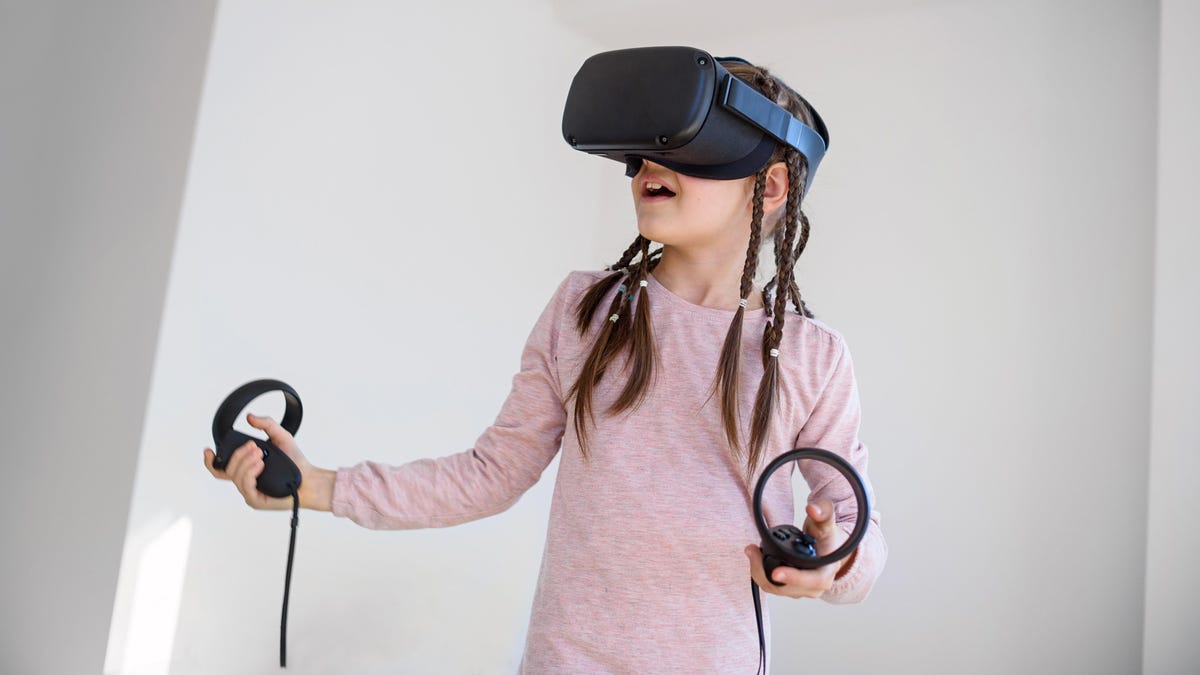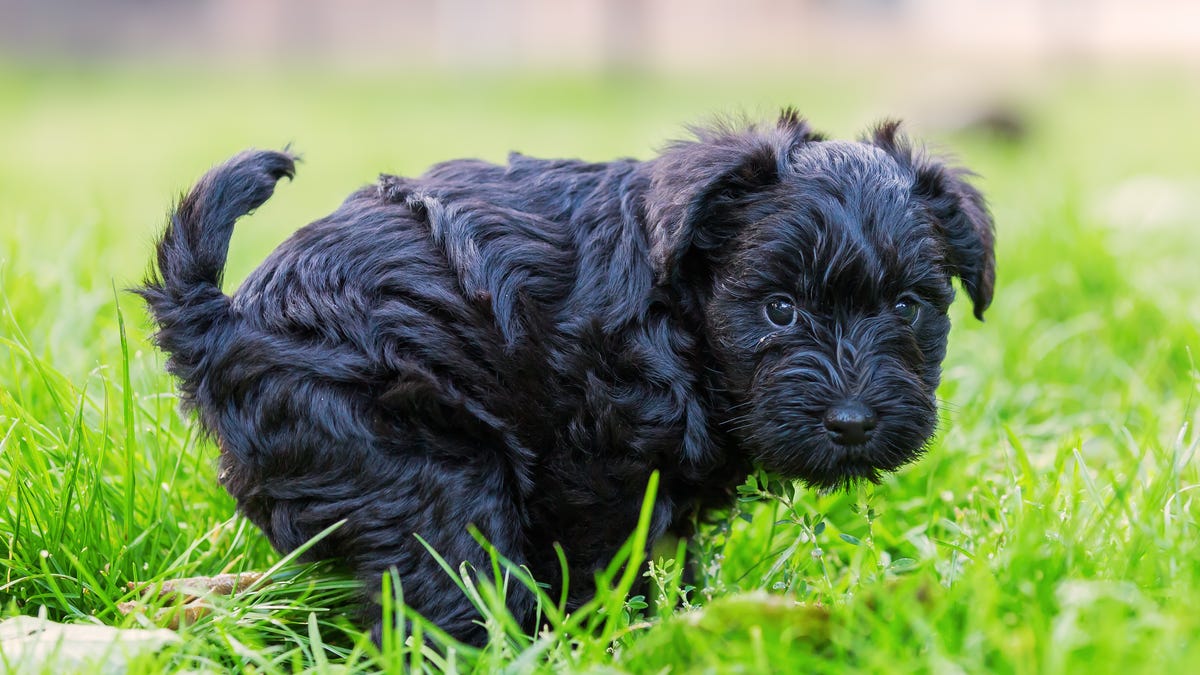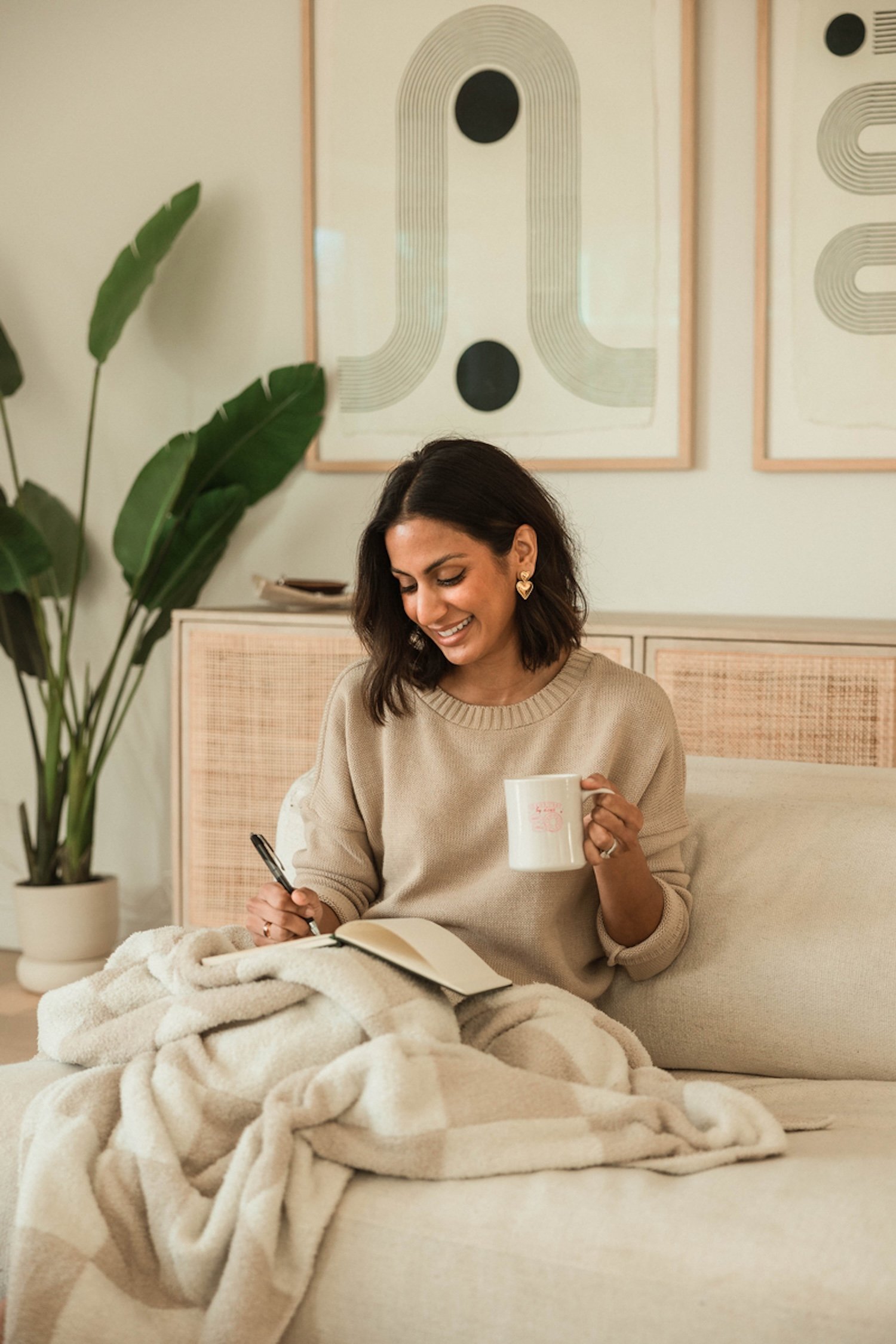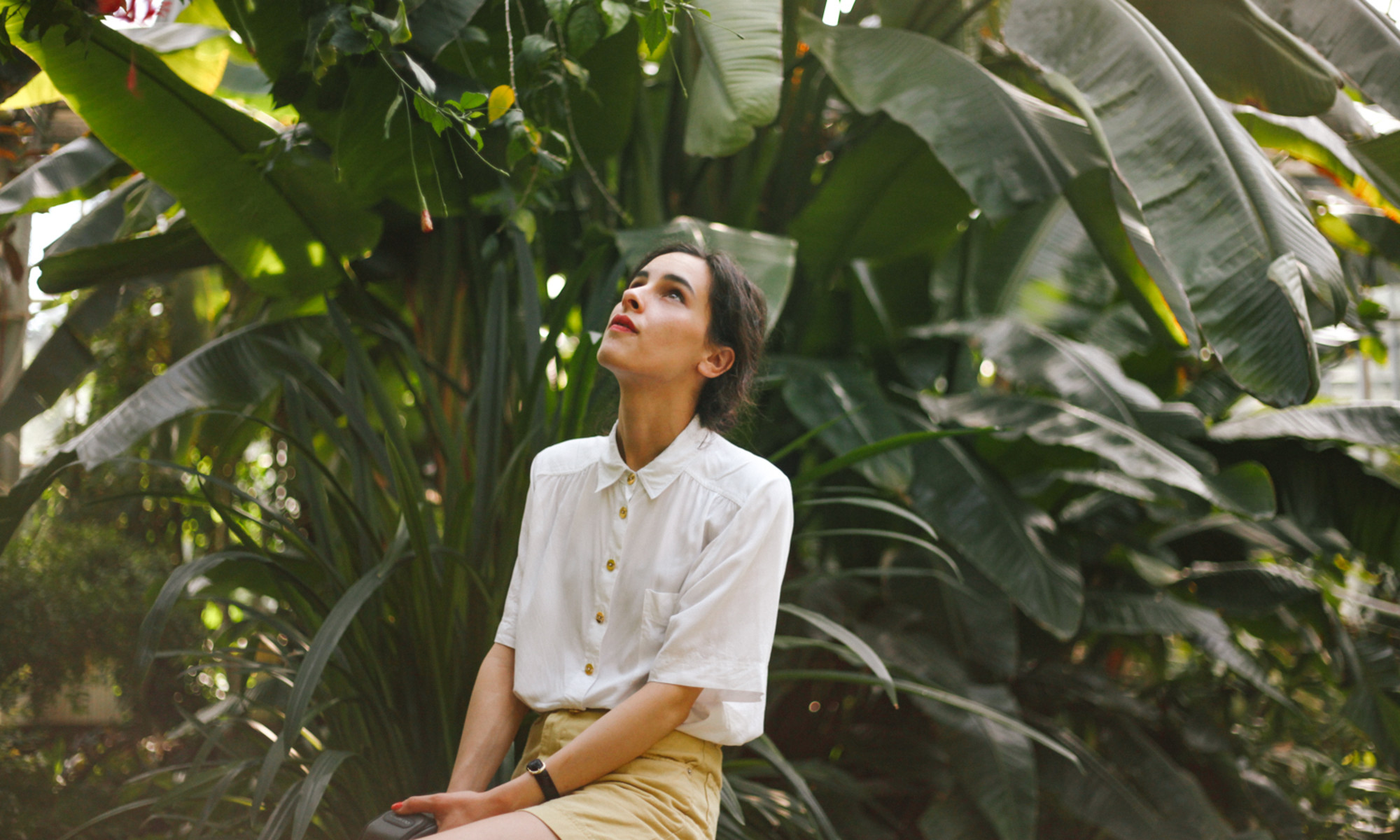Cow Face Pose (Gomukhasana): How to Do & Benefits
The Cow Face Pose, known as Gomukhasana in Sanskrit, is an intermediate-level seated pose that deeply stretches the muscles of the arms, legs, and back while also reducing stiffness in the shoulders and hips. The position gets its name...
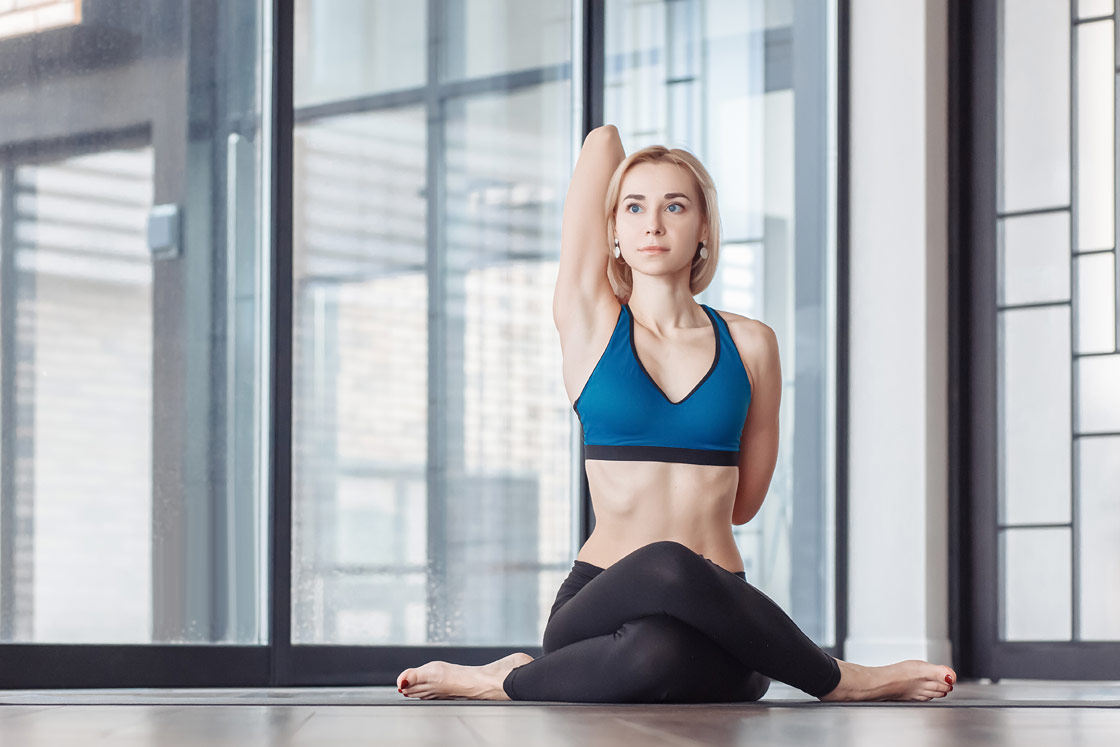
Ashish September 17, 2023
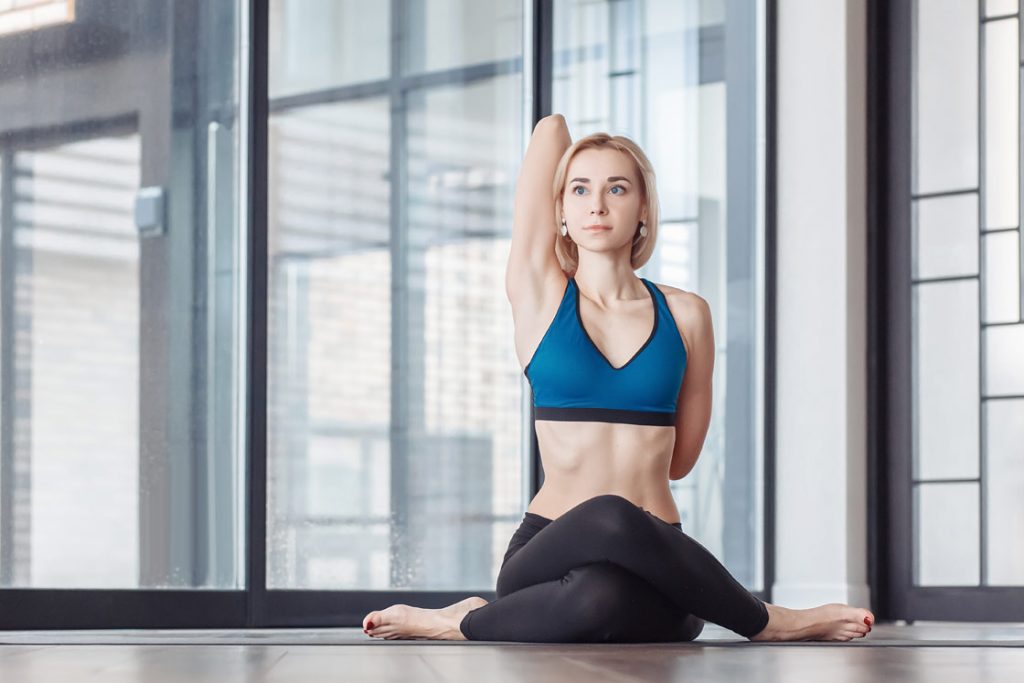 Image Source: Shutterstock
Image Source: ShutterstockThe Cow Face Pose, known as Gomukhasana in Sanskrit, is an intermediate-level seated pose that deeply stretches the muscles of the arms, legs, and back while also reducing stiffness in the shoulders and hips.
The position gets its name from the appearance it generates with the body: a cow’s face. The cow’s snout and mouth are represented by the crossed legs, while the cow’s ears are represented by the arms. The nose of the cow is formed by the torso.
The 4th-century Darshana Upanishad mentions this yoga stance, which is not only a very effective exercise but also used during Yoga Nidra, Pranayama, and Meditation attributed to its healing qualities. It aids in the secretion of hormones such as endorphins, which produce a feeling of peace and relaxation.
It stretches the arms, shoulders, chest, armpits, and hips while allowing for a full range of shoulder motion. It increases flexibility and stimulates the Chakras in our body, including the Sacral and Heart Chakras.
Gomukhasana develops balance and coordination with its posture. It’s a fantastic pose for anyone who sits for long periods of time at work since it opens your hips and chest, which helps to offset the slump that many people can develop after sitting.
In the forthcoming sections, we will see the steps for performing this pose along with its variations, tips to remember for performing it perfectly as well its benefits.
Practice Guide for Cow Face Pose
Preparatory Pose
Thunderbolt Pose (Vajrasana) Hero Pose (Virasana) Butterfly Pose (Badhakosana) Reclining Hand to Big Toe Pose (Supta Padangusthasana) Bow Pose (Dhanurasana) Downward Facing Dog Pose (Adho Mukha Svanasana) Warrior I Pose (Virabhadrasana I)Steps to Perform Cow Face Pose(Gomukhasana)
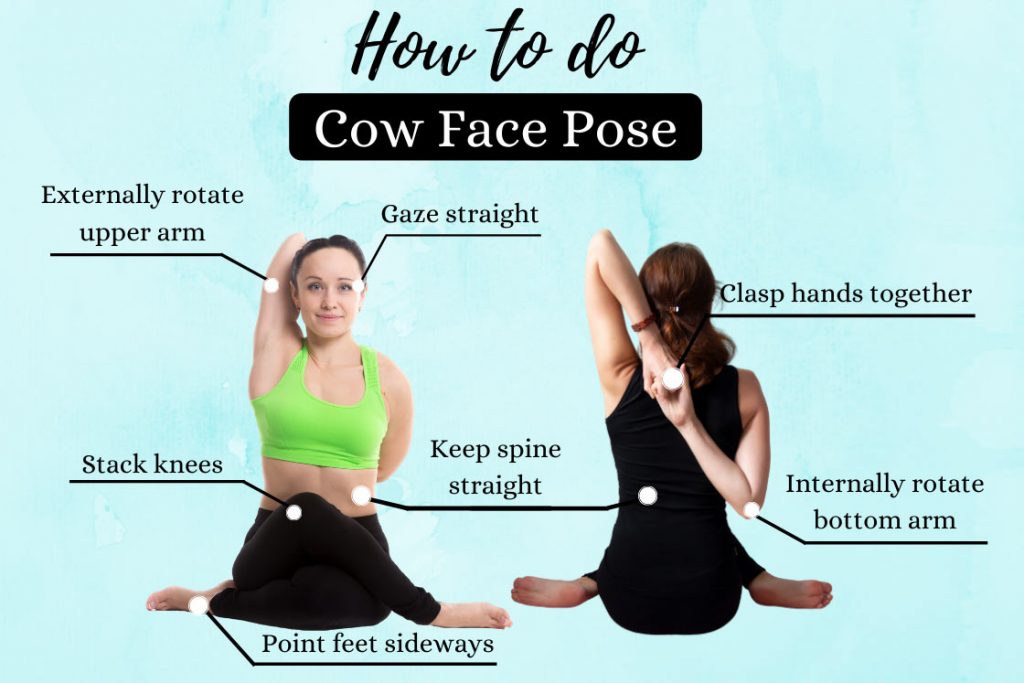 Image Source: ShutterstockStart in Dandasana (staff pose) on your yoga mat.
Bend your right knee and cross the right lower leg over the left thigh, placing it outside the left hip.
Similarly, bend your left knee, bringing the left foot outside the right hip and under the right thigh.
Use your hands to align your feet and knees, ensuring they are nearly stacked on top of each other.
Maintain a straight back by grounding your sitting bones.
Extend your arms out to the sides in a straight line.
Internally rotate your shoulders and bring the right arm toward the back.
Place the right hand between the shoulder blades with palms facing outward.
Extend the left arm overhead and bend the elbow to bring the forearm down, placing your hands near the back of the neck with palms facing inwards.
Interlock your fingers if possible; otherwise, maintain this hand position or aim to touch your fingertips.
Prevent your head from tilting sideways or forward by pressing the back of your head into the left hand.
Ensure both elbows are aligned toward the center.
Open your chest by drawing your shoulder blades back.
Hold for 3-5 breaths.
Gently release your arms and legs, then repeat with the opposite limbs.
Image Source: ShutterstockStart in Dandasana (staff pose) on your yoga mat.
Bend your right knee and cross the right lower leg over the left thigh, placing it outside the left hip.
Similarly, bend your left knee, bringing the left foot outside the right hip and under the right thigh.
Use your hands to align your feet and knees, ensuring they are nearly stacked on top of each other.
Maintain a straight back by grounding your sitting bones.
Extend your arms out to the sides in a straight line.
Internally rotate your shoulders and bring the right arm toward the back.
Place the right hand between the shoulder blades with palms facing outward.
Extend the left arm overhead and bend the elbow to bring the forearm down, placing your hands near the back of the neck with palms facing inwards.
Interlock your fingers if possible; otherwise, maintain this hand position or aim to touch your fingertips.
Prevent your head from tilting sideways or forward by pressing the back of your head into the left hand.
Ensure both elbows are aligned toward the center.
Open your chest by drawing your shoulder blades back.
Hold for 3-5 breaths.
Gently release your arms and legs, then repeat with the opposite limbs.
Tips to Remember
Ensure proper warm-up before attempting Cow Face Pose to prepare your shoulders and hips for the required flexibility. Avoid forcing your body into a perfect alignment; progress gradually as your flexibility improves over time. If you struggle to bring your legs into position from Dandasana, start from the tabletop pose and then gently sit down. Use a folded blanket, cushion, or yoga block under your sitting bone to maintain a straight spine and proper hip alignment. If you have stiff shoulders, consider using a yoga strap, belt, or a small towel to bridge the gap between your hands, gradually reducing the distance until you can hook your fingers. To achieve balance in your seated posture, place the top foot as close to the hip as possible while keeping the bottom foot away from the body. Begin by holding the pose for 30 seconds and progressively increase the duration as you become more comfortable.Precautions and Contraindications
The cow face pose is a complex pose in regards to the positioning of the arms and legs. Thus, you should first learn this pose under the guidance of an expert yoga teacher before attempting it by yourself. People with injuries to the knee, hips, thighs, shoulder, neck, and back should avoid this pose. Do not practice the leg position if you have sciatica as it may worsen the condition. Pregnant women should not perform this pose as it may put pressure on the abdomen. If you are experiencing pain in any key parts of the body, it is advisable that you do not practice the pose till the pain has reduced or completely gone. In case of ligament or soft tissue injury or muscle tear in the thighs, avoid the pose till you have fully recovered. Come out of the pose immediately if you feel any sort of discomfort.Cow Face Pose Variations
Half Cow Face Pose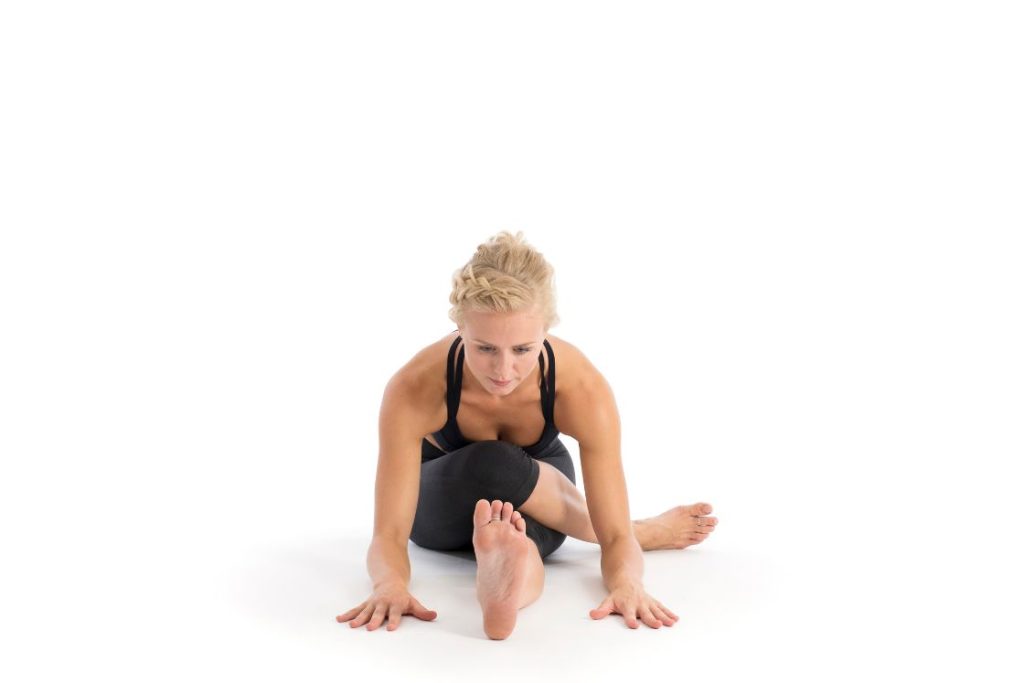 Image Source: Shutterstock
Image Source: Shutterstock
In this variation, you will be bending only one leg while keeping the other leg stretched in front of you. Start with bending the right leg and placing the lower right on top of the left thigh. The right foot will be close to the left hip. If you are a beginner, start by practicing this pose to gradually increase mobility and flexibility.
Shoelace Pose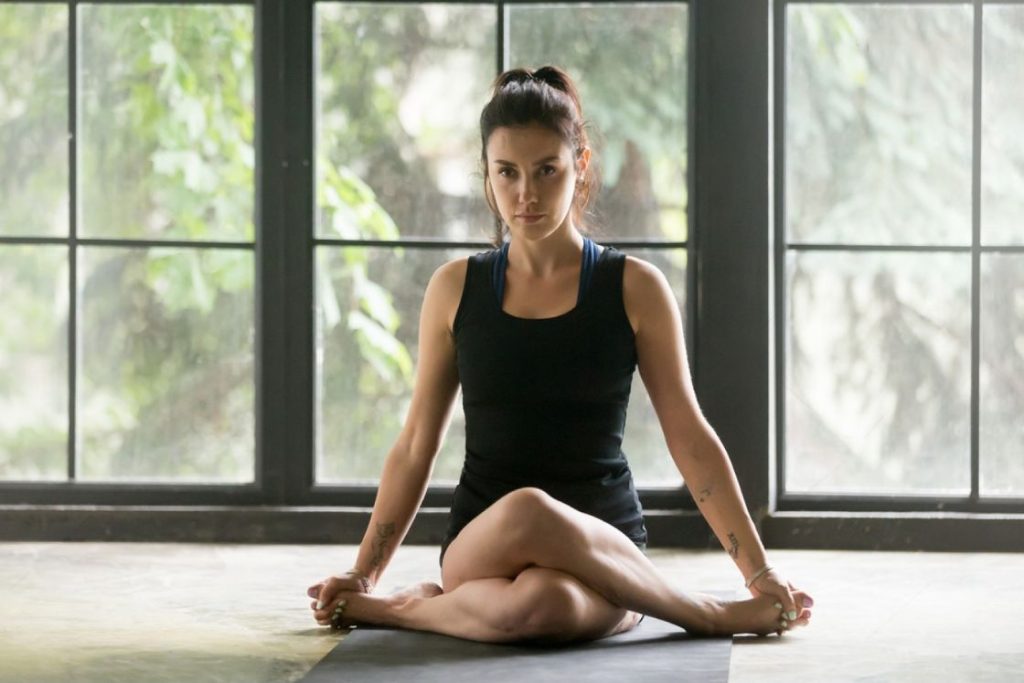 Image Source: Shutterstock
Image Source: ShutterstockThis pose requires you to only practice the leg part of the cow face pose. Your hands will be placed on the feet to keep your upper body straight. This is a great pose to practice when you do not want to engage your arms due to any reason yet want to strengthen your hips and legs.
Twisted Shoelace PoseFrom the above pose, twist your entire upper body in the direction of the leg that has been kept on top. For example, if your right leg has been kept on top, you will twist towards the right. Bring your left arm towards the right and place the hand outside the right knee. The right arm will be kept towards the back with palms on the ground. The twisting will strengthen your spine and back muscles and give more stretch to the thighs and hips.
Cow Face with Eagle Arms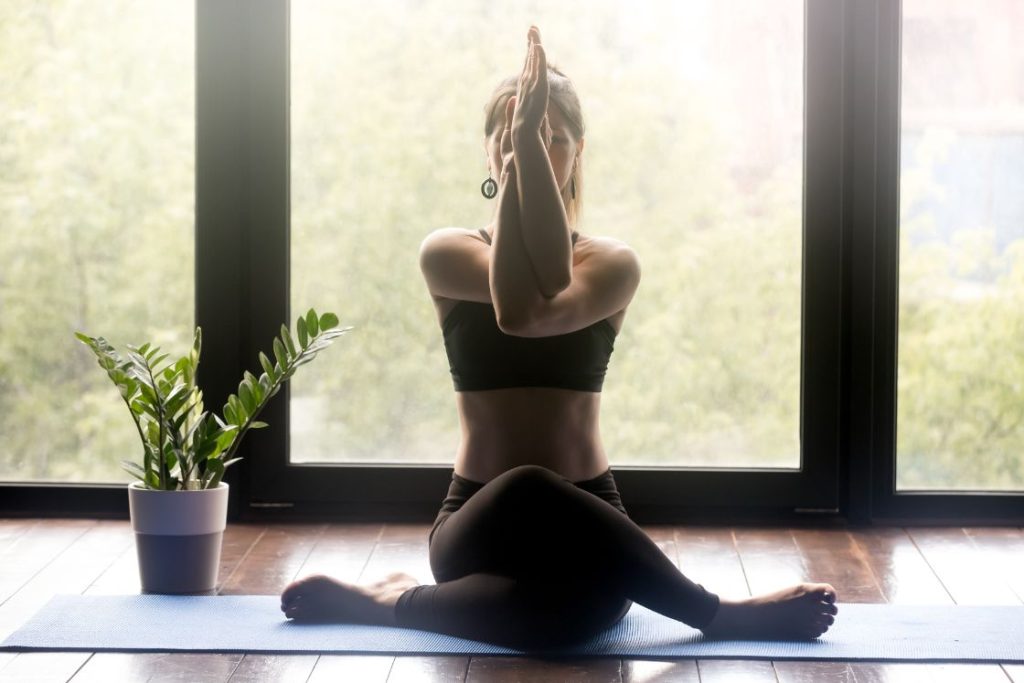 Image Source: Shutterstock
Image Source: ShutterstockInstead of holding your arms at the back, keep them in front of your chest. Put the right arm under the left arm to make a cross. Bend the elbows and join the palms. If not, hold the right-hand wrist with your left hand. The positioning of the arms in this way will strengthen your shoulders and stretch the upper back muscles.
Cow Face Forward Bend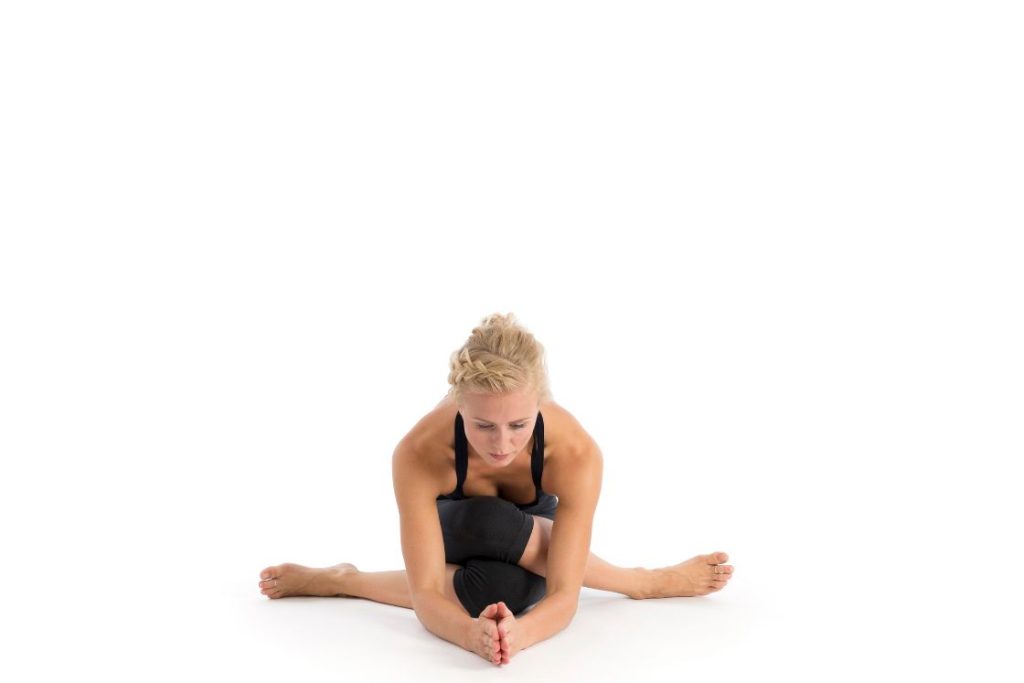 Image Source: Shutterstock
Image Source: ShutterstockThis is an extremely difficult and advanced pose where after maintaining the cow face pose for a few breaths you can slowly bend forward. This will allow you to experience a deeper stretch in the hips, lower back, and triceps. It should only be performed when you have attained sufficient strength in the spine and back muscles. The forward bend can also be done in the shoelace and half cow face pose.
Follow-up Pose
Seated Forward Fold (Paschimottanasana) Lotus Pose (Padmasana) Half Lord of the Fish Pose (Ardha Matsyendrasana) Bharadvaja’s Twist (Bharadvajasana) Eagle Pose (Garudasana) Marichyasana III Pigeon Pose (Eka Pada Rajakapotasana)Benefits of Cow Face Pose(Gomukhasana)
While the pose may look intense, the benefits you gain from practicing it are not that complex to understand. It not only helps in relieving stress and stiffness from the various joints but also aids in maintaining and correcting your posture. The cow face pose will also improve your digestive system and blood circulation.
Below are some benefits of practicing the cow face pose.
The backward positioning of the arms broadens the chest thus increasing the space for the lungs to expand freely and improving its capacity. Cow face position stretches the muscles in the ankles, knees, chest, and shoulders, strengthening them as well as improving general body posture. Almost all body joints are being used throughout the asana, which enhances blood flow and guarantees the body receives more blood and nutrition. Regular practice of the pose reduces damage to the ankles, chest, back, and shoulder in the long run. Practicing this mudra stimulates the kidneys which further helps in flushing out toxins through the improved frequency of urination. Improving kidney function also helps prevent kidney diseases such as type 2 diabetes, kidney stones, etc. It is a beneficial pose for athletes as it will stretch and strengthen the hamstrings, quads, calves, ankles, knees, and hips by improving blood circulation to the muscles of these body areas. It keeps the lower part organs healthy and cures sexual ailments. It can prevent sciatica by stretching and lengthening the spine, especially the lower spine. Deep abdominal stretching also burns excess fat in the belly area while toning the entire body. Diaphragmic breathing increases blood circulation in the chest and keeps allergies and ailments at bay. By lengthening the spine, this pose allows for a healthy flow of prana and blood to the brain. This further promotes a calm and relaxed mind by reducing fear, stress, and anxiety.Conclusion
The Cow Face Pose is an essential pose for hip opening. Your body will overcome the negative effects of stress, fear, and anxiety if you sit in this pose for several minutes while focusing on your breath and releasing these deep muscles.
Because of the strong emphasis on spine lift, it will also enhance your posture. It successfully nourishes your body, can boost your physical and emotional well-being and can improve your mood, and bring in more optimism.

 Kass
Kass 